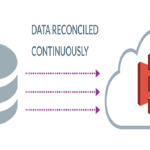Exploring Employee Integrity Assessment and Its Fusion with Applicant Tracking Software
In the dynamic landscape of the modern workplace, hiring and retaining trustworthy employees is paramount for the success and sustainability of any organization. Employee integrity is a critical factor that directly influences an organization’s culture, productivity, and overall success. To address this, businesses are increasingly turning to innovative approaches, and one such method gaining popularity is the fusion of Employee Integrity Assessment with Applicant Tracking Software (ATS).
This comprehensive article will delve into the significance of employee integrity, explore various assessment methods, and examine the emerging trend of integrating these assessments into applicant tracking system. By understanding the synergy between these two elements, businesses can streamline their hiring processes, mitigate risks, and foster a workplace culture built on trust and transparency.
The Significance of Employee Integrity
Employee integrity refers to the quality of being honest, ethical, and reliable in the workplace. It encompasses a range of attributes such as trustworthiness, responsibility, and adherence to ethical principles. Organizations that prioritize employee integrity often enjoy enhanced teamwork, increased employee morale, and a positive work environment. Additionally, employees with high integrity contribute to a company’s reputation and are more likely to uphold ethical standards, reducing the risk of legal and financial repercussions.
In a world where information travels rapidly and reputations can be made or broken overnight, the importance of hiring individuals with high integrity cannot be overstated. Employee integrity is not only about avoiding dishonest behavior but also about fostering a culture where employees feel accountable and aligned with the organization’s values.
Traditional Methods of Assessing Employee Integrity
Historically, businesses have relied on traditional methods to assess employee integrity during the hiring process. These methods include reference checks, background screenings, and interviews. While these approaches can provide valuable insights, they often fall short in providing a comprehensive understanding of an applicant’s integrity.
1. Reference Checks
Reference checks involve contacting an applicant’s previous employers or colleagues to gather information about their work ethic, reliability, and integrity. While this method can offer valuable insights, it is limited by the willingness of references to share candid feedback and the potential bias of the information provided.
2. Background Screenings
Background screenings typically involve checking an applicant’s criminal history, credit report, and educational and employment background. While these screenings can identify red flags, they may not provide a holistic view of an individual’s integrity or ethical decision-making.
3. Interviews
Interviews remain a crucial part of the hiring process, allowing employers to directly interact with candidates. However, relying solely on interviews may not reveal subtle signs of integrity issues, as candidates can often present a polished and rehearsed image.
The Role of Technology in Assessing Employee Integrity
As technology continues to advance, businesses are turning to innovative solutions to enhance their hiring processes. One such solution is the integration of Employee Integrity Assessment tools with Applicant Tracking Software (ATS). This combination aims to leverage technology to provide a more nuanced and data-driven approach to evaluating an applicant’s integrity.
1. Employee Integrity Assessments
Employee Integrity Assessments utilize various tools and methodologies to evaluate an individual’s integrity, ethics, and values. These assessments may include personality assessments, situational judgment tests, and integrity-specific questionnaires. By incorporating psychological and behavioral insights, these assessments aim to provide a more comprehensive understanding of a candidate’s character.
2. Applicant Tracking Software (ATS)
ATS is a software application that automates the hiring process by managing the recruitment and application process. It allows businesses to streamline the sourcing, screening, and hiring of candidates, improving overall efficiency. ATS systems are designed to handle large volumes of applications and assist recruiters in identifying the most suitable candidates for a particular role.
The Fusion of Employee Integrity Assessment with ATS
The integration of Employee Integrity Assessments with ATS represents a paradigm shift in the hiring landscape. This fusion combines the efficiency of automated applicant tracking with the depth of insights provided by integrity assessments, offering a more comprehensive and data-driven approach to candidate evaluation.
1. Streamlining the Hiring Process
By integrating Employee Integrity Assessments with ATS, businesses can streamline their hiring processes. Instead of relying solely on manual assessments and subjective judgments, the ATS can automatically administer integrity assessments to all applicants, ensuring a standardized and fair evaluation process.
2. Data-Driven Decision Making
The fusion of Employee Integrity Assessments with ATS generates a wealth of data that can inform hiring decisions. These assessments provide quantifiable metrics related to an applicant’s integrity, allowing recruiters and hiring managers to make more informed and objective decisions.
3. Identifying High-Risk Candidates
One of the key advantages of integrating integrity assessments with ATS is the ability to identify high-risk candidates early in the hiring process. Candidates who exhibit potential integrity issues can be flagged, allowing organizations to proactively address concerns and mitigate risks before making a hiring decision.
4. Enhancing Cultural Fit
Employee integrity is closely tied to cultural fit within an organization. By using integrity assessments within the ATS, businesses can better align their hiring decisions with the values and culture of the company. This alignment contributes to a more cohesive and positive work environment.
Future Trends and Outlook
The fusion of Employee Integrity Assessment with ATS is likely to evolve further as technology continues to advance. Future trends may include the integration of artificial intelligence (AI) and machine learning (ML) algorithms to enhance the predictive capabilities of integrity assessments. Additionally, a more widespread acceptance and standardization of integrity assessment tools across industries may occur.
Conclusion
Employee integrity is a cornerstone of a successful and ethical workplace. As organizations navigate the complexities of the modern business landscape, the fusion of Employee Integrity Assessment with Applicant Tracking Software emerges as a powerful tool to enhance the hiring process. By leveraging technology to gain deeper insights into an applicant’s integrity, businesses can make more informed decisions, mitigate risks, and build a workplace culture rooted in trust and transparency.
However, it’s crucial for organizations to navigate the legal, ethical, and practical considerations associated with these assessments and strike a balance between automation and human judgment to foster a holistic and effective hiring process. As the synergy between Employee Integrity Assessment and ATS continues to evolve, businesses can look forward to a future where hiring decisions are not only efficient but also rooted in a profound understanding of a candidate’s character and values.



